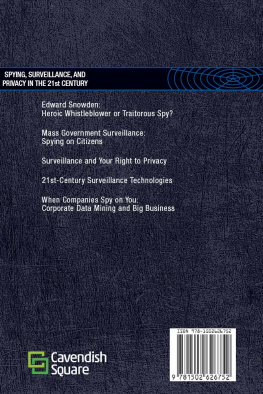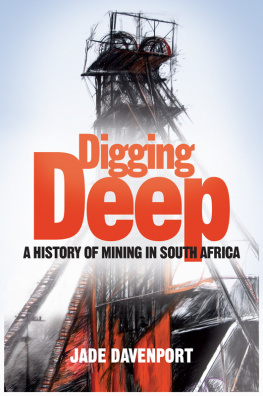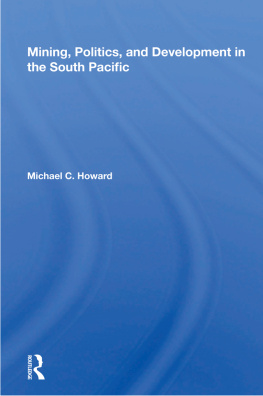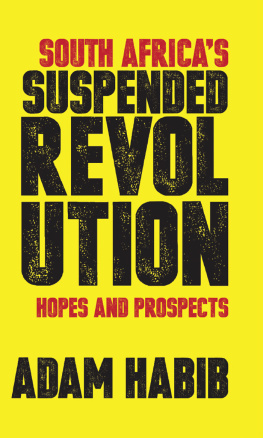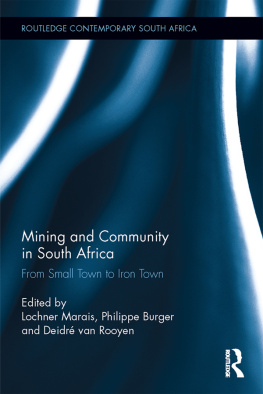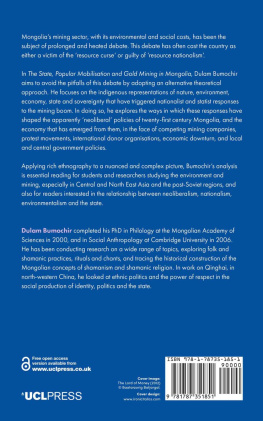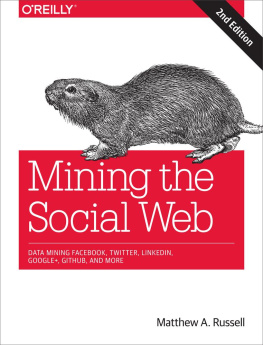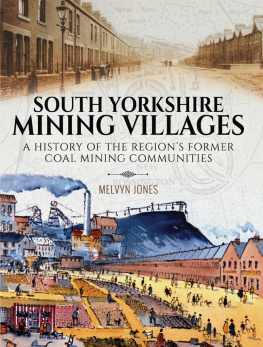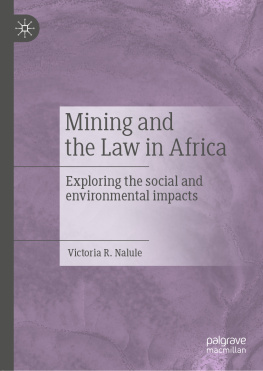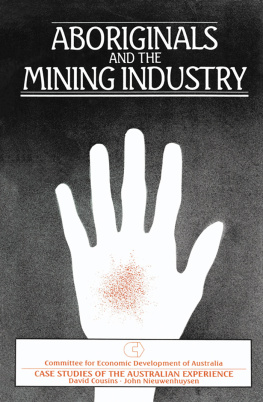
Social Licensing and Mining in South Africa
This book highlights the role of community trusts in social licensing through the lens of mining and mining disputes in South Africa.
Employing elements of trust, acceptance, and elite interaction as a framework, this book critically investigates the underlying dynamics of community development trusts and also the response of host communities to the inherent dilemma of the social licence to operate (SLO) concept, namely social legitimation versus corporate profits. Looking at formal versus informal regulatory requirements, popular mobilisation, and the interaction between the local population and mining companies, this book constitutes a thorough look at the issues surrounding mining in South Africa and its effect on society.
This book will be of interest to students and scholars of African studies, business in Africa, corporate responsibility, and development studies.
Sethulego Matebesi is a Senior Lecturer in the Department of Sociology at the University of the Free State (UFS), South Africa.
Routledge Contemporary Africa Series
Life-Writing from the Margins in Zimbabwe
Versions and Subversions of Crisis
Oliver Nyambi
Complex Adaptive Systems, Resilience and Security in Cameroon
Manu Lekunze
The International Criminal Court and the Lords Resistance Army
Enduring Dilemmas of Transitional Justice
Joseph Otieno Wasonga
African Intellectuals in the Post-colonial World
Fetson A Kalua
National Healing, Integration and Reconciliation in Zimbabwe
Edited by Ezra Chitando
Africas Elite Football
Structure, Politics, and Everyday Challenges
Edited by Chuka Onwumechili
Social Licensing and Mining in South Africa
Sethulego Matebesi
The Everyday Life of the Poor in Cameroon
The Role of Social Networks in Meeting Needs
Nathanael Ojong
For more information about this series, please visit: www.routledge.com/Routledge-Contemporary-Africa/book-series/RCAFR
Social Licensing and Mining in South Africa
Sethulego Matebesi
First published 2020
by Routledge
2 Park Square, Milton Park, Abingdon, Oxon OX14 4RN
and by Routledge
52 Vanderbilt Avenue, New York, NY 10017
Routledge is an imprint of the Taylor & Francis Group, an informa business
2020 Sethulego Matebesi
The right of Sethulego Matebesi to be identified as author of this work has been asserted by him in accordance with sections 77 and 78 of the Copyright, Designs and Patents Act 1988.
All rights reserved. No part of this book may be reprinted or reproduced or utilised in any form or by any electronic, mechanical, or other means, now known or hereafter invented, including photocopying and recording, or in any information storage or retrieval system, without permission in writing from the publishers.
Trademark notice: Product or corporate names may be trademarks or registered trademarks, and are used only for identification and explanation without intent to infringe.
British Library Cataloguing-in-Publication Data
A catalogue record for this book is available from the British Library
Library of Congress Cataloging-in-Publication Data
A catalog record has been requested for this book
ISBN: 978-1-138-34893-6 (hbk)
ISBN: 978-0-429-43107-4 (ebk)
Typeset in Baskerville
by codeMantra
To Lesego, Puleng and Tshiamo
Photo 1Roads blocked with rocks in Atok
Photo 2Atok village, Limpopo
Photo 3Jagersfontein protestors in front of burned town hall
Photo 4Jagersfontein residents marching to mine and CDT
The present book is based on a three-year (20162018) research project of community development trusts and conflict in mining-affected communities in four provinces of South Africa. However, its genesis can be traced to my former role as Research Associate at the Centre for Development Support (CDS) of the University of the Free State (UFS). I was part of a research team of the CDS that was commissioned by the Centre for Enterprise Development a Johannesburg-based independent public policy research and advocacy non-profit organisation established in 1995 to conduct four case studies at the municipal level in 2006 on what is popularly known as service delivery protests. The project captured my attention and piqued my curiosity in such a way that I began a three-year study of the widespread grassroots forms of mobilisation against municipalities between 2013 and 2015, which was funded by the Thuthuka Programme of the National Research Foundation. This research project led to my extended research visit to Uppsala, Sweden in 2014, which ultimately culminated in the publication of Civil Strife against Local Governance: Dynamics of Community Protests in Contemporary South Africa in 2017. Two major themes for future research emerged from this project: how core protest leaders benefit from incentives provided by the political or social elites (I call this transactional activism), and the role of community development trusts in fomenting community protests.
My interest in miningcommunity relations was further shaped by my mentor, Professor Lochner Marais of the Centre for Development Enterprise, who, when I shared my future research workstreams with him, told me, Zachy, believe me, you will have scope for work for the next 20 years within the extractive field. It is thus no surprise that I begin to express my profound gratitude to Prof. Marais for being mostly responsible for shaping my scholarly journey. I benefited immensely from our monthly interaction over the past two years as a mentor for the Andrew Mellon Foundation Inclusive Professoriate Programme at UFS. Furthermore, I am immensely impressed by Prof Marais relentless efforts to promote research excellence with policy relevance in the service of society.
I would also like to thank Routledge Publishers for selecting my book for publication and, as a result, providing a voice to the many voiceless mining-affected communities in South Africa and across the world. Thanks to Leanne Hinves and Henry Strang the incredibly knowledgeable editorial team of the Routledge African Studies list who were my main points of contact during the writing stage and for preparing the submitted manuscript for the production team. My sincere appreciation goes to the anonymous peer reviewers who reviewed the book proposal as well as the completed manuscript.
Social Licensing and Mining in South Africa would not have been possible without generous funding from the Thuthuka Programme of the National Research Foundation of South Africa, as well as the Andrew Mellon Foundation Inclusive Professoriate Programme hosted by the Faculty of Humanities of UFS. A special thanks to Dean of the Faculty of the Humanities, Prof. Heidi Hudson, and former deans, Prof. Lucius Botes and Prof. Milagros Rivera, for creating a rich, stimulating, and engaging environment for the Mellon Fellows. I would also like to thank Marizanne Cloete for the excellent manner in which she dealt with the administration of the Mellon programme. I am also grateful to the entire Mellon Fellows for the vibrant and intense academic deliberations, which contributed to my intellectual growth. I also extend my thanks to Billy Kalima (doctoral candidate) and Siyanda Magayana (masters candidate) whom I had the privilege of supervising as part of the Andrew Mellon Foundation scholarship.


